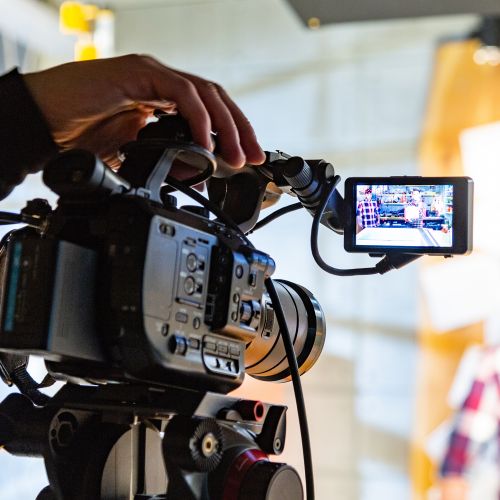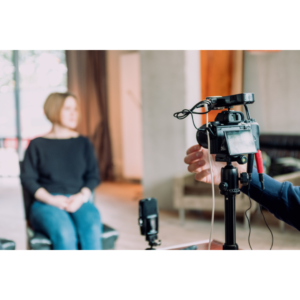Trusted Legal Videography for Reliable Case Support.
Trusted Legal Videography for Reliable Case Support.
Blog Article
The Duty of Lawful Videography in Depositions and Trials
Lawful videography has emerged as a necessary device in both depositions and tests, supplying a diverse technique to documenting witness testaments. As legal specialists significantly identify its worth, it prompts a deeper exam of just how these aesthetic records can affect juror assumptions and test end results.
Importance of Lawful Videography
Legal videography plays a pivotal duty in the documents and discussion of depositions and tests. This specialized field incorporates technical abilities with lawful understanding to create a reputable document of procedures that can dramatically influence case end results. The aesthetic facet of legal videography enhances the understanding of witness statement, permitting jurors and judges to observe not only the talked words yet additionally the temperament, feelings, and body language of the witnesses.

The value of lawful videography extends past the courtroom; it also plays a crucial function in maintaining proof for future reference, whether for allures or more lawsuit. Its integration into the legal process is important for guaranteeing a reasonable and exact depiction of the truths, inevitably adding to the quest of justice.

Refine of Legal Videography
While recording the subtleties of depositions and trials, the procedure of lawful videography entails numerous important actions that ensure top quality, precise recordings. Originally, a professional legal videographer prepares by evaluating the situation materials and understanding the specific needs of the deposition or trial. This preparation consists of familiarizing themselves with the participants and the context, which assists in capturing important details.
On the day of the recording, the videographer establishes the required tools, which usually includes high-def electronic cameras, microphones, and correct illumination. Making sure optimal angles and audio quality is vital, as it directly influences the performance of the recording. The videographer connects with lawyers and individuals to establish protocols, ensuring that everybody recognizes the recording process.
During the deposition or trial, the videographer meticulously tapes the procedures, paying close focus to both spoken and non-verbal signs. legal videography. This includes catching the disposition and responses of witnesses and lawyers. After the session wraps up, the videographer might edit the video footage for clearness and conformity with lawful criteria, creating a last item that precisely reflects the proceedings for future referral and use in lawful contexts
Benefits in Depositions
The unification of videography in depositions provides many advantages that enhance the overall process of collecting evidence. One main benefit is the ability to record witness testaments with aesthetic and acoustic integrity, supplying a much more accurate depiction of the witness's disposition, tone, and body movement. This multidimensional approach enables lawyers and juries to evaluate integrity a lot more efficiently than traditional written records alone.
In addition, videographed depositions act as an effective tool for maintaining testament. Needs to a witness become unavailable for test, their taped deposition can be played in court, guaranteeing that their proof continues to be obtainable and appropriate. This aspect significantly minimizes the risk of shedding essential details that could influence situation results.
Furthermore, using legal videography promotes better prep work for attorneys. Assessing video footage permits legal teams to assess and improve their strategies, recognizing strengths and weak points in their instances. This primary benefit can lead to more compelling presentations in Click Here court.
Finally, videography improves the total professionalism and trust of the deposition procedure, instilling self-confidence in clients regarding the thoroughness of their lawful representation. By leveraging technology, lawful experts can significantly improve the performance of depositions.
Effect On Tests
In numerous trials, the integration of videography can significantly affect the presentation of evidence and the jury's perception. Lawful videography captures witness testimonies and essential proof in a dynamic format, allowing jurors to involve with the material on multiple degrees. This visual element enhances the storytelling element of a this website trial, supplying context and emotional resonance that standard text-based evidence may lack.
Additionally, video recordings can function as effective tools for impeachment throughout cross-examination. When discrepancies arise between a witness's previous statements and their court statement, video evidence provides an objective referral that can sway jurors' point of views. This immediacy and quality can strengthen the reliability of a celebration's story while at the same time threatening opposing arguments.
In addition, using videography can help streamline complicated details, making it extra easily accessible to jurors that might have a hard time to realize intricate information offered exclusively via verbal statement. By incorporating visuals with acoustic details, legal videography can enhance retention and understanding, eventually influencing the court's decision-making process. As a result, the effect of videography in trials expands beyond mere aesthetic appeals; it plays a vital duty in shaping the legal landscape and end results.
Future Trends in Legal Videography
As we look towards the future of legal videography, a number of arising patterns assure to improve its duty within the courtroom. One substantial fad is the assimilation find of man-made intelligence (AI) in video analysis and editing and enhancing - legal videography. AI can streamline the procedure of recognizing essential moments in taped depositions, allowing attorneys to promptly access relevant content, thereby enhancing performance in situation preparation
Additionally, the rise of virtual truth (VIRTUAL REALITY) and enhanced reality (AR) innovations is anticipated to transform how jurors experience evidence. By submersing jurors in a simulated environment, these modern technologies can provide an extra profound understanding of complicated situations, bring about even more enlightened deliberations.

Moreover, the raising demand for remote depositions, sped up by the COVID-19 pandemic, will likely proceed. Legal videographers will need to adjust to new software and systems to make sure premium recordings in online settings.
Last but not least, the expanding emphasis on information security will certainly demand more stringent methods for saving and sharing video evidence. As the lawful landscape advances, lawful videographers must stay abreast of these trends to maintain their importance and performance in the judicial procedure.

Final Thought
In recap, lawful videography serves an essential feature in the judicial process, boosting the honesty of depositions and trials. As innovation continues to progress, lawful videography is positioned to more transform its function within the lawful landscape.
Report this page